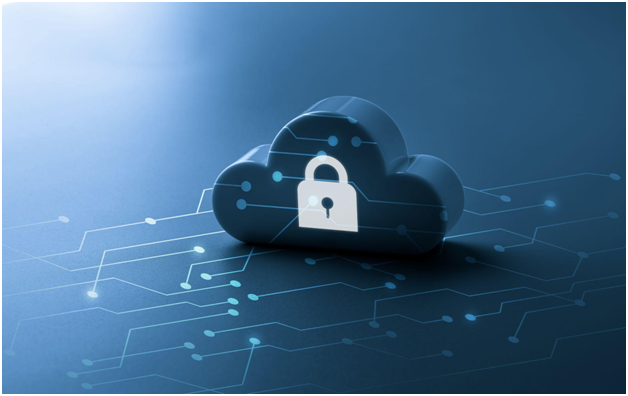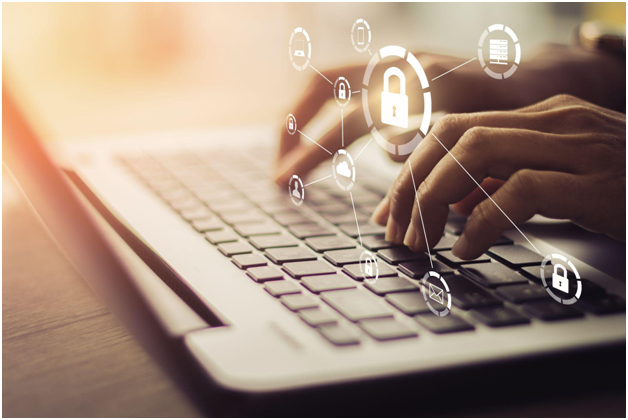In today’s fast-paced and interconnected business landscape, safeguarding sensitive company data and maintaining online privacy have become paramount concerns for organizations. With cyber threats rising, businesses need robust solutions to protect their valuable information and communication from potential breaches. This is where commercial VPNs, also known as business VPNs, play a crucial role.
A commercial VPN is an advanced application that provides end-to-end encryption for business devices’ internet connections. It creates a secure virtual tunnel that ensures all data transmitted through it remains private and impervious to cyber threats. These VPNs are specifically designed to cater to the security needs of businesses, making them an indispensable tool for protecting company data and ensuring online safety.
This article will explore the significance of commercial VPNs for businesses and their benefits in providing secure connections, protecting company data, and safeguarding online activities. We will also address the question, “How safe is a VPN?” to help businesses make informed decisions about their data security strategies. Let’s delve into the world of commercial VPNs and discover how they can enhance business security in the digital age.
Understanding Commercial VPNs
A business VPN, also known as a commercial VPN, is a robust application that employs end-to-end encryption to secure the internet connections of business devices. Unlike traditional internet connections, which can be susceptible to interception and hacking, business VPNs create a virtual tunnel that encrypts data and communication, ensuring its privacy and integrity. This advanced encryption ensures that sensitive information, internal documents, customer data, and communication remain private and impervious to cyber threats.
The Advantages of Business VPNs

In the modern era of digital connectivity and remote work, businesses face increasing challenges to secure their data and protect sensitive information from cyber threats. In this landscape, Business VPNs (Virtual Private Networks) have emerged as a vital solution to address these concerns. A Business VPN offers a secure and encrypted network connection, allowing employees to access company resources and exchange data safely over the Internet.
Enhanced Security
Even with firewalls and antivirus software in place, online connections may remain vulnerable to specific cyber threats. Business VPNs provide comprehensive end-to-end encryption, bolstering critical information security and protecting against malware, viruses, and other cyberattacks. This heightened security helps companies safeguard their data and maintain the trust of their customers.
Safe and Secure Data Sharing
Business VPNs facilitate secure data sharing within and outside the organization. Encrypted files ensure that only authorized individuals with the correct encryption key can access and utilize sensitive data, safeguarding it from potential breaches and unauthorized access. This secure data-sharing capability enhances collaboration between employees and business partners while ensuring data confidentiality.
Remote Data Access
In modern business, remote work and mobility have become increasingly prevalent. Business VPNs play a crucial role in enabling secure remote data access for employees. Whether traveling for business or working from home, employees can securely connect to the company’s network, ensuring access to essential data and resources without compromising security.
Overcoming International Censorship
In an interconnected world, international business travel and operations are standard. However, certain countries impose internet censorship and restrict access to specific websites and services. Business VPNs offer a solution to this challenge by allowing organizations to connect to VPN servers in different locations, bypassing internet censorship and ensuring unrestricted access to essential services and resources.
How to Know if a Business VPN is Safe?
Strong Encryption Protocols: A safe and secure business VPN should utilize strong encryption protocols, such as AES-256, to protect data transmission. With robust encryption, your data remains confidential and cannot be deciphered or intercepted by malicious actors.
- No-Logs Policy: Look for a business VPN that adheres to a strict no-logs policy. This means the VPN service does not store or retain any logs of user activities or connection details, ensuring maximum privacy and anonymity.
- Server Locations and Security: Ensure the VPN provider operates secure and reputable servers. Check for the locations of the servers and whether they are subject to stringent security measures to prevent unauthorized access.
- Third-Party Audits and Certifications: Consider business VPN providers that undergo third-party audits and possess certifications from reputable security organizations. These assessments provide additional assurance of the VPN’s security and adherence to industry best practices.
- User Authentication and Authorization: Look for VPNs that offer robust user authentication and authorization mechanisms. Features like multi-factor authentication and role-based access control enhance the VPN’s security and prevent unauthorized access.
Potential Considerations for Business VPNs

As businesses increasingly rely on digital infrastructure and remote connectivity, the importance of secure and reliable network solutions becomes paramount. Business VPNs (Virtual Private Networks) have emerged as a critical tool for safeguarding sensitive data, ensuring secure remote access, and protecting confidential communications. However, choosing the right business VPN requires careful consideration of various factors to ensure it meets the organization’s specific needs and security requirements.
By understanding these essential aspects, businesses can make informed decisions and implement a robust VPN solution that enhances data security and empowers seamless and secure communication within the organization.
Evaluating Encryption Protocols
When assessing the safety of a business VPN, it’s essential to examine its encryption protocols. To ensure robust data protection, look for VPN providers that use industry-standard encryption methods, such as AES-256. Avoid VPNs that use weak or outdated encryption, which may leave your data vulnerable to attacks.
Logging and Privacy Policies
A trustworthy business VPN should have a clear and transparent logging policy. Ideally, it should have a strict no-logs policy, meaning that it does not keep any records of users’ online activities. This ensures that your data and browsing history remain confidential and cannot be accessed or shared with third parties.
Server Locations and Jurisdiction
Consider the locations of the VPN servers and the legal jurisdiction in which the VPN provider operates. Some countries have data retention laws that may require VPN companies to store user data and share it with authorities upon request. Opt for VPN providers based in jurisdictions with strong privacy laws and a commitment to user data protection.
Multi-factor Authentication (MFA)
An additional layer of security for a business VPN is multi-factor authentication (MFA). MFA requires users to provide two or more forms of identification before gaining access to the VPN. This could include a combination of passwords, biometrics, or security tokens, making it significantly harder for unauthorized individuals to breach the network.
User Authentication and Access Control
Check if the business VPN offers robust user authentication and access control features. It should allow administrators to set different levels of access for different users, ensuring that only authorized personnel can access sensitive data and resources.
Third-party Audits and Certifications
Reputable business VPN providers often undergo third-party security audits and certifications to validate data protection practices. Look for VPNs that have received certifications like ISO 27001 or SOC 2, which indicate a commitment to maintaining high-security standards.
Customer Support and Incident Response
Consider the level of customer support and incident response the VPN provider offers. A reliable business VPN should have a responsive support team that can promptly assist with any security concerns or incidents.
Setup and Costs
Traditional business VPNs may entail significant setup time, effort, and expenses, especially for smaller companies without an existing IT department. The initial configuration of VPN servers and devices can be complex. However, managed cloud VPN solutions have emerged as a more straightforward and cost-effective alternative, reducing the burden of setup and maintenance.
Management and Operations
Self-managed VPNs may require dedicated personnel to handle ongoing security and operations. Ensuring the VPN’s integrity, monitoring its performance, and implementing necessary updates are critical for maintaining a secure environment. While vital for data protection, this additional responsibility may add to the company’s operational costs.
Conclusion

In today’s data-driven business landscape, safeguarding company and customer data is paramount to avoid costly breaches and reputational damage. Business VPNs provide a reliable solution to enhance data security, privacy, and accessibility. With end-to-end encryption, secure data sharing, and remote data access capabilities, these VPN solutions empower businesses to protect their sensitive information and maintain a robust online presence. While setup and management considerations exist, the security and flexibility offered by business VPNs make them invaluable tools for organizations seeking to protect their data and stay ahead in an increasingly digital and interconnected world. Embracing a business VPN can be a strategic move to bolster your company’s security and safeguard your valuable data assets.






